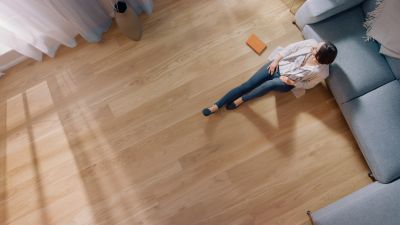Leading Products To Enhance Flooring Service Performance
Identify key products that improve efficiency, precision, and quality in professional flooring installation and repair.
 In Acworth, Georgia, selecting the right products for flooring services is essential for achieving durable and aesthetically pleasing results. Whether renovating a residential space or outfitting a commercial property, the variety of flooring products available can cater to different needs, preferences, and budgets. From classic hardwood options to modern resilient materials, understanding the options can help ensure a successful flooring project. The right products not only enhance the visual appeal but also contribute to the longevity and functionality of the flooring, making careful consideration of each component vital.
In Acworth, Georgia, selecting the right products for flooring services is essential for achieving durable and aesthetically pleasing results. Whether renovating a residential space or outfitting a commercial property, the variety of flooring products available can cater to different needs, preferences, and budgets. From classic hardwood options to modern resilient materials, understanding the options can help ensure a successful flooring project. The right products not only enhance the visual appeal but also contribute to the longevity and functionality of the flooring, making careful consideration of each component vital.
Top Overall Option
Comprehensive Flooring Installation Kit
A versatile flooring installation kit that includes essential tools, adhesives, underlayments, and finishing supplies. Designed for both professional contractors and dedicated DIYers, this all-in-one set simplifies the process of installing various flooring types, offering reliable performance and compatibility with multiple materials. Its comprehensive nature helps ensure a smooth, efficient project with consistent results.
Types of Products For Flooring Service
Hardwood Floor Adhesives
Specialized glues formulated for securing hardwood flooring, providing strong bonding and flexibility.
Vinyl Flooring Planks
Resilient and easy-to-install planks suitable for high-traffic areas and moisture-prone spaces.
Ceramic Tile Grout
Cement-based or epoxy grouts used to fill gaps between tiles, ensuring durability and a finished look.
Laminate Flooring Underlayment
Pads that provide sound insulation and moisture barriers beneath laminate flooring.
Luxury Vinyl Tile (LVT)
High-quality vinyl tiles that mimic natural stone or wood, offering durability and aesthetic appeal.
Epoxy Floor Coatings
Resin-based coatings used to create durable, seamless surfaces in garages or commercial spaces.
Floor Sealants and Finishes
Protective coatings that enhance the appearance and durability of various flooring materials.
Self-Leveling Compound
Materials used to create smooth, flat surfaces on uneven subfloors prior to installation.
Moisture Barriers
Products designed to prevent moisture infiltration, protecting flooring and subfloors.
Floor Removal Tools
Specialized equipment for safely removing old flooring materials before installation.
Transition Strips
Profiles used to create seamless transitions between different types of flooring or rooms.
Cleaning and Prep Solutions
Products for preparing subfloors and cleaning surfaces prior to installation.
Baseboards and Molding
Finishing trim pieces that complement and protect flooring edges.
Flooring Installation Tools
Essential tools such as saws, trowels, and spacers to facilitate precise installation.
Acoustic Underlayments
Materials that reduce sound transmission between floors, enhancing comfort and privacy.
Rubber Flooring Rolls
Flexible, cushioned surfaces ideal for gyms, play areas, or commercial settings.
Decorative Floor Inlays
Design elements that add visual interest and customization to flooring projects.
Popular Choices
A trending resilient flooring option appreciated for its ease of installation and variety of styles.
Popular for its realistic appearance and durability, suitable for many residential and commercial spaces.
A classic choice that offers timeless appeal and can be refinished multiple times.
Cost-effective and easy to install, often used for quick upgrades.
Favored for bathrooms and kitchens due to its water resistance and variety of designs.
Increasing in popularity for garage floors and industrial spaces for their durability.
Commonly used to prepare uneven subfloors for smooth installation.
Essential for areas prone to moisture, helping prevent damage to flooring materials.
Popular for protecting and enhancing the appearance of wood and concrete floors.
Widely used for creating clean, professional-looking transitions between different flooring types.
Increased demand for soundproofing and moisture control.
High-quality products for maintaining and prolonging the life of flooring surfaces.
Popular for finishing touches that complement various flooring styles.
In demand for renovation projects involving old or damaged flooring.
Gaining popularity for personalized and stylish flooring accents.
Flooring projects often involve multiple stages, including preparation, installation, and finishing. This requires a comprehensive selection of products such as underlayments, adhesives, sealants, and cleaning supplies. High-quality tools and accessories can simplify installation processes and improve the overall result. Additionally, choosing the appropriate products for specific floor types—whether it is laminate, tile, vinyl, or hardwood—can influence the ease of maintenance and the lifespan of the flooring.
For professionals and DIY enthusiasts alike, understanding the variety of available products can lead to more informed decisions. It is important to consider factors such as compatibility with existing subfloors, moisture resistance, ease of use, and safety features. Proper product selection can also help prevent common issues like warping, cracking, or adhesion failures, ensuring the flooring remains in excellent condition for years to come. With a broad range of options on the market, taking the time to research and select suitable products is a key step toward a successful flooring project in Acworth, GA.
Key Buying Considerations
- Compatibility with existing subfloor materials and conditions.
- Moisture resistance and suitability for specific environments.
- Ease of installation, especially for DIY projects.
- Durability and expected lifespan of the product.
- Aesthetic options including color, texture, and style.
- Maintenance requirements and ease of cleaning.
- Compatibility with other flooring types in adjacent rooms.
- Availability of necessary accessories like transition strips and trims.
- Safety features, such as slip resistance.
- Environmental conditions like humidity and temperature fluctuations.
- Budget constraints and overall project cost.
- Warranty and manufacturer support.
- Environmental and health safety standards, if relevant.
- Installation time frame and complexity.
- Potential impact on indoor air quality.
